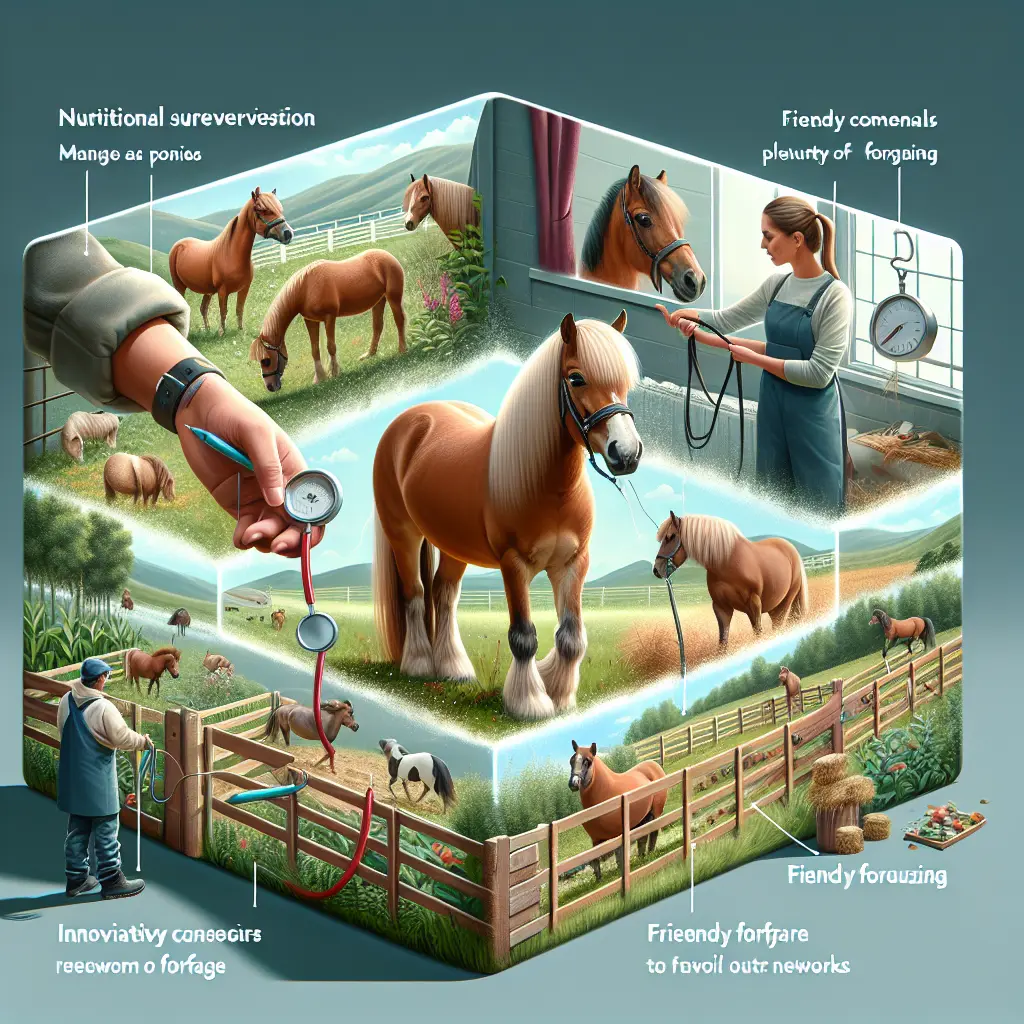What Are the Best Strategies for Managing and Finding Suitable Homes for Ponies with Special Needs?
Managing ponies with special needs can be both rewarding and challenging. To provide the best care for these small but mighty equines, it's crucial to understand their specific requirements and ensure they have suitable homes. Below, we explore essential strategies for managing and finding the right homes for ponies with special needs.
Understanding Special Needs in Ponies
Ponies with special needs might have conditions like physical disabilities, behavioral issues, or medical conditions requiring extra care. Their small size often hides their robust personalities and specific needs, making it essential to tailor their management and care carefully. Understanding these needs is the first step in providing appropriate care. For example, nutritional supervision is critical for ponies to manage their weight and prevent health issues like insulin dysregulation.
Strategies for Managing Ponies with Special Needs
Nutritional Management
 Ponies have different nutritional needs compared to larger horses. They require close monitoring of their diet to prevent overeating or weight gain, which can lead to health problems. Using body condition scoring systems and regular veterinary check-ups can help manage their weight effectively.
Ponies have different nutritional needs compared to larger horses. They require close monitoring of their diet to prevent overeating or weight gain, which can lead to health problems. Using body condition scoring systems and regular veterinary check-ups can help manage their weight effectively.
Exercise and Movement
Regular exercise is vital for maintaining the physical and mental health of ponies. This can include ridden work, longeing, hand-walking, or free movement in pastures. Exercise helps manage weight and improves muscle tone, reducing the risk of obesity-related conditions.
Environmental Enrichment
Providing an environment that allows ponies to express natural behaviors is essential. This includes access to friends, forage, and freedom—principles known as the 3Fs. Offering choices in their living space, like different surfaces to roll on or shelter options, can enhance their mental well-being [3].
Pasture and Fencing Management
 Safe and suitable fencing is critical for ponies, as they can be agile and escape if not properly contained. Using rows of electrical tape on fences can prevent them from slipping through gaps. Pasture management techniques like strip-grazing help control their food intake and prevent overgrazing [5].
Safe and suitable fencing is critical for ponies, as they can be agile and escape if not properly contained. Using rows of electrical tape on fences can prevent them from slipping through gaps. Pasture management techniques like strip-grazing help control their food intake and prevent overgrazing [5].
Finding Suitable Homes for Ponies
Assess the Pony's Needs
Understanding the specific needs of the pony, including any medical requirements or behavioral issues, is paramount. This initial assessment sets the stage for finding suitable homes that can provide the care they need.
Evaluate Potential Homes
Look for homes with experienced caregivers who can provide tailored care. Consider factors like available space, fencing quality, and the ability to provide regular veterinary visits. Not every home will be appropriate, so it's essential to thoroughly evaluate the living conditions and commitment of potential adopters.
Consult with Professionals
Collaborate with veterinarians or equine professionals to assess potential homes and ensure they meet the pony's needs. Their expertise can offer insights that might not be immediately obvious to non-experts.
Network and Outreach
Use local equine networks or online forums to reach out to potential caregivers who have experience with special needs ponies. Leveraging these networks can help locate homes that already understand the specific challenges and joys of caring for a pony with special needs.
Equine-Assisted Therapies for Special Needs
 For ponies and horses, equine-assisted therapies are not only beneficial for humans but can also be therapeutic for the equines involved. Engaging in activities like therapeutic riding or hippotherapy can provide mental stimulation and exercise for the ponies, while also aiding individuals with special needs [1].
For ponies and horses, equine-assisted therapies are not only beneficial for humans but can also be therapeutic for the equines involved. Engaging in activities like therapeutic riding or hippotherapy can provide mental stimulation and exercise for the ponies, while also aiding individuals with special needs [1].
Conclusion
Managing and finding suitable homes for ponies with special needs requires careful attention to their unique requirements. By understanding their needs and implementing tailored care strategies, we can ensure these ponies live happy and healthy lives. Additionally, their involvement in equine-assisted therapies can have mutual benefits, enhancing their well-being while supporting individuals with special needs.
For readers interested in equine-assisted therapies and managing special needs ponies, additional resources include:
These resources offer insights into therapeutic riding, pony care, and managing equines with special needs.
To explore more equestrian apparel and supplements, visit our collections of Jodhpurs, Horse Riding Boots, and Socks. Don't forget to check out our Everyday Horse Vitamins & Supplements and Horse Treats And Gifts!
 Explore our essentials such as Stable Rugs and Turnout Rugs, along with Horse Fly Protection to ensure a comfortable environment for all equine friends.
Explore our essentials such as Stable Rugs and Turnout Rugs, along with Horse Fly Protection to ensure a comfortable environment for all equine friends.

